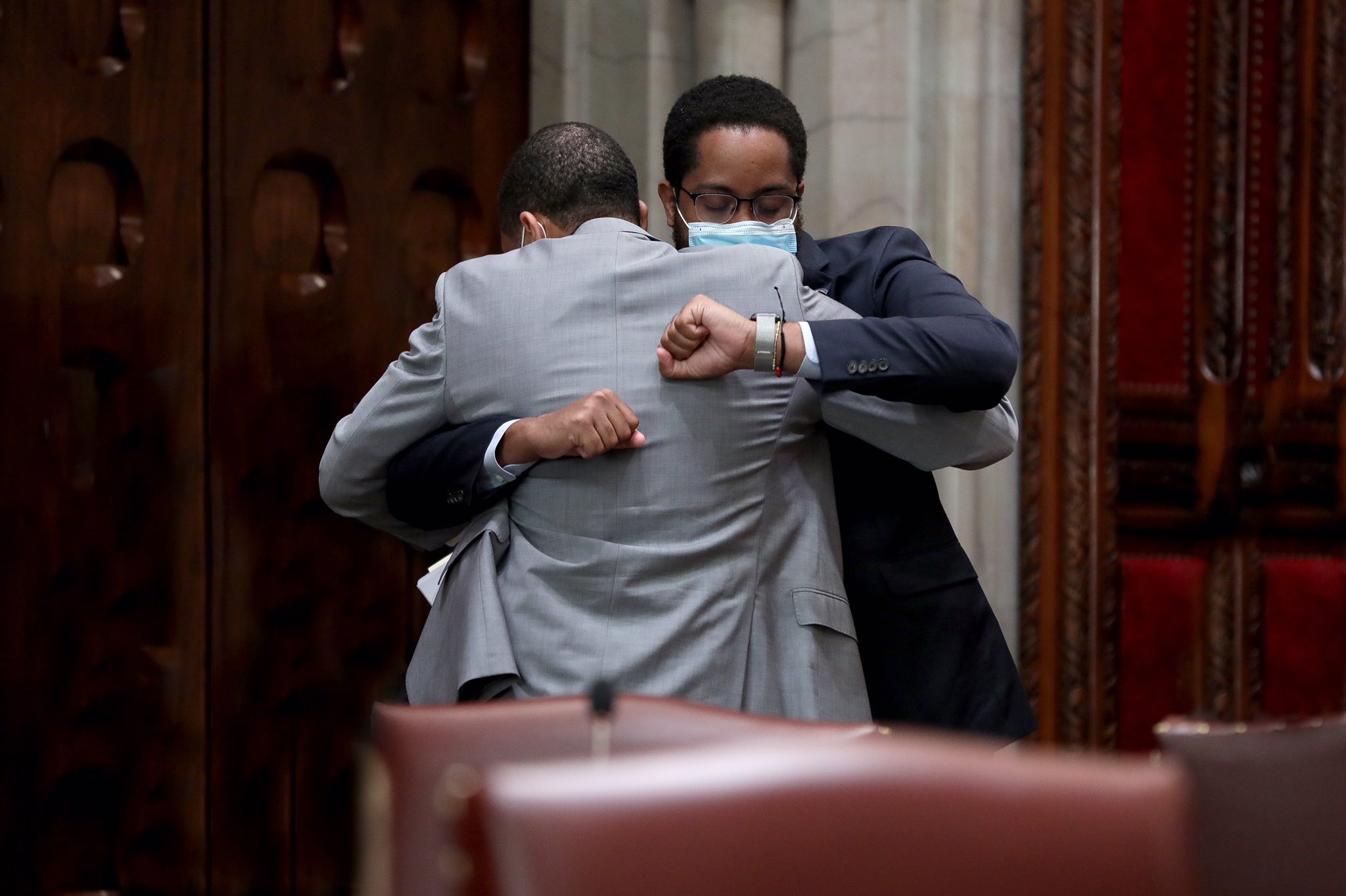The problem
In New Jersey, police misconduct records — such as excessive force, lying, and falsifying reports — are largely kept secret. Without this information, the public cannot identify officers who violated the rules and hold them accountable for their actions.
The secrecy around police discipline also blocks people facing potentially life-altering criminal charges from knowing the full background of the officers involved in their cases. That is because a New Jersey Supreme Court rule created a presumption of non-disclosure of police disciplinary records, in which the defense can only access information about misconduct if they already know about the misconduct. This catch-22 means that courts rarely rule in favor of disclosure.
As a result, defendants, prosecutors, judges, and juries are usually left in the dark if officers involved in a case have histories of transgressions. For example, if not informed of officers’ records of perjury or misconduct, defense attorneys cannot accurately assess the credibility of officers involved in their clients’ cases. Police records are important background information for defense attorneys and help them decide whether or not to advise their clients of their best options like whether to plead guilty or fight the charges.
This rule also means that when cases do go to trial, the accused cannot raise concerns about an officer’s credibility, and judges and juries cannot properly assess their testimony. Without the full background of police officers involved in arrests, investigations, and testimony, the innocent are at risk of being wrongly convicted.
What does SB 2656 do?
Senate Bill 2656, sponsored by Senator Loretta Weinberg, D-Bergen, would make law enforcement records available for release under the state Open Public Record, including:
- Complaints, allegations, and charges filed against police officers
- Transcripts and exhibits from disciplinary trials and hearings
- Dispositions of proceedings
- Final written opinion/memo on disposition and discipline imposed, including the agency’s complete factual findings and analysis of the officer’s conduct
- Internal affairs records
- Agency factual findings, analysis, and final opinions on disciplinary hearings
- Video recordings of incidents that gave rise to complaints, allegations, charges, or internal affairs investigations



The Judicial system has protected the guilty and privileged way too long , now a shift is taking place